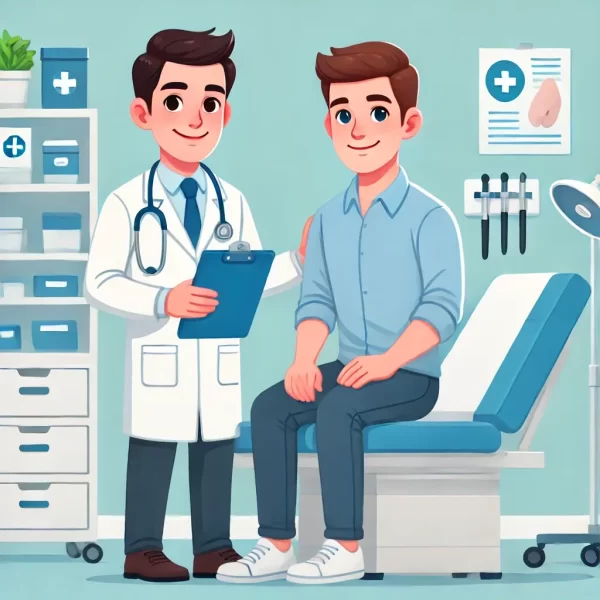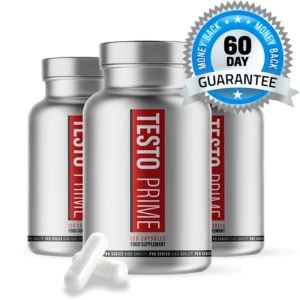Maintaining strong erection quality is crucial not just for a satisfying sex life but also as a key indicator of overall health. When blood flow, hormone levels, and nervous system function are in harmony, achieving and maintaining an erection comes naturally. However, certain lifestyle choices can quietly sabotage this vital process—chief among them are alcohol consumption and smoking.
While occasional indulgence might seem harmless, chronic drinking and smoking can dramatically impair your sexual performance over time. These habits don’t just affect your energy or stamina—they strike at the core mechanisms that enable healthy erections. In this article, we’ll dive deep into how alcohol and smoking impact your erection quality and explore realistic steps you can take to reverse the damage and reclaim your confidence.
How Alcohol Affects Your Erection Quality
Alcohol is one of the most common substances linked to erectile dysfunction (ED), and its effects extend far beyond a temporary “off night.” According to a study published in the Journal of Sexual Medicine, about 72% of alcohol-dependent men experience sexual dysfunction, with ED being the most reported issue.

Even occasional heavy drinking can have immediate effects on sexual performance, but chronic alcohol use compounds the damage in several critical ways:
Impact on Blood Flow and Vascular Health
Healthy erections rely heavily on optimal blood flow to the penis. Initially, alcohol acts as a vasodilator—widening blood vessels and creating a feeling of warmth. However, repeated alcohol exposure damages the delicate endothelial cells that line the arteries. Over time, this damage results in atherosclerosis (hardening and narrowing of the arteries), which reduces the amount of blood that can flow into the penis during arousal.
A study from the British Journal of Urology International found that men with heavy alcohol use had significantly lower penile blood flow compared to non-drinkers, even when other health factors were controlled. Long-term, this vascular impairment not only affects erections but also increases the risk of cardiovascular diseases, creating a dangerous feedback loop that worsens sexual health.
Effect on Testosterone Levels
Testosterone, the primary male sex hormone, plays a pivotal role in libido, erection strength, and sexual satisfaction. Chronic alcohol consumption disrupts the endocrine system by impairing the testes’ ability to produce testosterone. One study showed that men with chronic alcohol abuse had testosterone levels up to 50% lower than healthy controls.
Low testosterone, or hypogonadism, doesn’t just lead to reduced sex drive; it also directly affects the physical ability to achieve an erection. The longer alcohol abuse continues, the harder it becomes to restore normal testosterone levels even after quitting, highlighting the importance of early intervention.
If you’re interested in ways to naturally support testosterone production, you can explore our comprehensive guide on foods that boost testosterone and libido naturally.
Psychological Effects
Alcohol is a central nervous system depressant, which blunts arousal pathways between the brain and the sexual organs. While a drink or two might lower inhibitions, excessive alcohol disrupts the ability to become mentally and physically aroused, leading to a condition colloquially known as “whiskey dick.”
In addition, alcohol abuse increases the risk of anxiety and depression—two psychological factors independently associated with ED. According to the American Journal of Psychiatry, men with alcohol dependence are two to three times more likely to experience major depressive disorder compared to the general population, further compounding sexual dysfunction.
Long-Term Consequences
The cumulative impact of alcohol on erection quality is often underestimated. While many men assume that cutting back on alcohol will instantly restore sexual function, the reality is more complex.
- Damage to blood vessels can be permanent if drinking continues for years.
- Testosterone production may not fully recover, even after prolonged abstinence.
- Mental health issues triggered by alcohol dependency often require separate treatment to fully restore sexual confidence and performance.
Early action is crucial. The sooner alcohol intake is reduced or eliminated, the greater the chance of reversing some of the vascular and hormonal damage before it becomes irreversible.
How Smoking Affects Your Erection Quality
Smoking is one of the most well-established risk factors for erectile dysfunction (ED). Numerous studies have confirmed the direct, damaging effects of tobacco use on the blood vessels, nervous system, and tissues critical for achieving and maintaining an erection.
According to research published in the American Journal of Epidemiology, male smokers are nearly twice as likely to develop ED compared to non-smokers. Even more concerning, the risk increases proportionally with the number of cigarettes smoked daily.

Damage to Blood Vessels and Nitric Oxide Production
Erections are fundamentally a vascular event. When a man is aroused, the body releases nitric oxide—a key molecule that signals blood vessels to relax and expand, allowing blood to flood into the penis. Smoking directly undermines this process in two devastating ways:
- Vascular Constriction: Nicotine, the addictive chemical in cigarettes, causes immediate vasoconstriction (narrowing of blood vessels), reducing blood flow throughout the body—including the penis.
- Endothelial Dysfunction: The toxins in cigarette smoke damage the endothelial cells responsible for nitric oxide production, severely impairing the body’s ability to trigger and maintain an erection.
A meta-analysis published in European Urology concluded that smokers have reduced penile blood flow and nitric oxide bioavailability even after accounting for other health variables. Over time, this leads to progressively weaker erections and higher rates of vascular-related sexual dysfunction.
Reduced Oxygen Supply
Cigarette smoke contains not just nicotine but also carbon monoxide—a gas that binds to hemoglobin in the blood, preventing oxygen from reaching tissues efficiently. Oxygen is crucial for the health and elasticity of penile tissue.
Chronic oxygen deprivation causes penile tissues to become fibrotic (scarred) and less responsive during arousal. This physical deterioration makes achieving a firm erection increasingly difficult, even if psychological desire remains intact. Long-term, it can lead to a condition called venous leak, where the penis cannot trap blood effectively during erection, resulting in incomplete or short-lived rigidity.
Long-Term Risks: Erectile Dysfunction and Penile Tissue Damage
The longer a man smokes, the greater the cumulative damage.
- Studies show that men who smoke for more than 10 years have a 60% greater risk of developing severe ED compared to those who never smoked.
- Smoking accelerates arterial plaque buildup (atherosclerosis), not only impacting heart health but also directly limiting penile blood supply.
- Even after quitting, some vascular damage and tissue fibrosis may be permanent if smoking persisted for decades.
Importantly, the dose-response relationship is clear: the more cigarettes smoked per day and the longer the smoking history, the worse the erectile outcomes.
However, the body has a remarkable ability to heal when given the chance. Research shows that men who quit smoking before the age of 50 can halve their risk of developing permanent ED compared to those who continue smoking.
Combined Effects of Alcohol and Smoking on Sexual Health
While alcohol and smoking each independently harm sexual function, their combined impact can be even more devastating. Together, they create a “perfect storm” of vascular, hormonal, and neurological disruptions that dramatically increase the risk of erectile dysfunction (ED) and other sexual health problems.
A large-scale study published in the Journal of Andrology found that men who both smoked and drank heavily had a 3.7 times greater risk of developing moderate to severe ED compared to those who neither smoked nor drank. This suggests that the negative effects are not merely additive but potentially synergistic—each habit magnifying the damage caused by the other.

Vascular Compromise: A Double Attack
Both alcohol and smoking impair endothelial function—the critical inner lining of blood vessels responsible for regulating blood flow. When combined, these effects lead to:
- Accelerated Atherosclerosis: Smoking promotes plaque buildup, while alcohol damages vessel walls, compounding blockages in the arteries supplying the penis.
- Reduced Nitric Oxide Availability: Both habits reduce the production and effectiveness of nitric oxide, making it even harder for blood vessels to relax during sexual arousal.
- Chronic Vasoconstriction: Nicotine-induced vasoconstriction combined with alcohol-induced vascular stiffness drastically limits the blood inflow required for a strong erection.
The result is not only difficulty achieving an erection but also reduced penile rigidity and shorter-lasting erections over time.
Hormonal and Neurological Decline
Excessive alcohol consumption lowers testosterone levels, while smoking can further suppress hormone production and disrupt endocrine function. This double hit significantly diminishes sexual desire, erection quality, and recovery time between sexual activity.
Neurologically, alcohol and tobacco together dull the body’s arousal signals, impairing the brain’s ability to coordinate the complex cascade of events necessary for a healthy erection. Men may find that even when mentally aroused, their bodies are increasingly unresponsive.
Compounding Psychological Effects
Beyond the physical consequences, the combination of alcohol and smoking can heighten mental health issues such as anxiety, depression, and low self-esteem—all of which are known contributors to ED.
- Studies have shown that men who struggle with substance abuse are twice as likely to experience sexual dissatisfaction and performance anxiety compared to non-users.
- Over time, the psychological toll can become self-reinforcing: poor performance leads to increased anxiety, which further worsens ED.
The Big Picture: A Steep Downward Spiral
If left unchecked, the combined effects of alcohol and smoking can push a man’s sexual health into a steep, self-perpetuating decline.
- Weakened blood vessels, damaged penile tissue, suppressed testosterone, and psychological barriers all interact, making natural recovery increasingly difficult.
- The longer both habits persist, the less likely it is that full erectile function can be restored without medical intervention.
Recognizing these risks early and taking proactive steps to quit both smoking and excessive drinking can dramatically improve not just sexual performance but also overall cardiovascular and mental health.
Can You Reverse the Damage?
The good news is that, for many men, the body has an impressive ability to heal once alcohol consumption and smoking are reduced or eliminated. However, the extent of recovery largely depends on how long the damaging habits persisted, how severe the damage is, and how early intervention begins.
While some effects may be reversible within months, other long-term damage—especially to blood vessels and penile tissue—might require medical treatment or could become permanent if not addressed early enough.
Quitting Alcohol and Smoking: What to Expect
When you stop smoking and cut back on alcohol, the body immediately begins its repair process:
- Within 24 hours of quitting smoking, blood pressure and heart rate start to normalize.
- After 2–3 months of abstinence from alcohol and cigarettes, improvements in blood vessel function are often noticeable, leading to better blood flow.
- Studies show that men who quit smoking can experience significant improvement in erectile function within 6–12 months.
However, complete recovery depends on avoiding relapse. Even occasional smoking or binge drinking after quitting can slow or reverse the healing process.
Timeline for Recovery: How Long It Takes
| Time After Quitting | Expected Improvements |
|---|---|
| 24–72 hours | Improved oxygen levels, reduced blood vessel constriction |
| 2–3 months | Enhanced endothelial function, slight testosterone rebound |
| 6 months | Noticeable improvements in erection quality and stamina |
| 12 months | Significant reduction in ED symptoms for most men |
| 1–2 years | Cardiovascular risk approaches that of non-smokers; erectile function may stabilize |
🔹 Important note: Recovery is typically faster and more complete in younger men (under 50) and those without underlying chronic conditions such as diabetes or severe cardiovascular disease.
Additional Tips to Boost Recovery
While quitting harmful habits is the first step, maximizing recovery often requires a comprehensive lifestyle shift:
- Exercise Regularly: Aerobic exercise improves circulation and nitric oxide production, both crucial for strong erections.
- Optimize Nutrition: A diet rich in antioxidants (like leafy greens, berries, nuts) helps repair vascular damage.
- Manage Stress and Sleep: Chronic stress and sleep deprivation worsen vascular and hormonal recovery. Prioritize relaxation and restorative sleep.
- Support Hormone Health: Zinc, vitamin D, and herbal supplements like ashwagandha may aid in natural testosterone restoration.

In some cases where natural recovery is limited, medical interventions such as PDE5 inhibitors (e.g., sildenafil) or testosterone replacement therapy might be necessary. However, lifestyle improvements should always be the foundation for long-term sexual health.
Final Thoughts
Your erection quality is a direct reflection of your vascular, hormonal, and neurological health—and both alcohol and smoking are powerful disruptors of these critical systems. While the occasional drink or cigarette might seem harmless, habitual use quietly undermines your sexual function over time, often without immediate warning signs.
The longer these habits persist, the greater the risk of permanent damage. However, it’s important to remember that the body is remarkably resilient. By quitting smoking, moderating alcohol intake, and embracing healthier lifestyle choices, many men can experience profound improvements in their sexual performance, confidence, and overall vitality.
Your best erections—and your best health—start with the choices you make today. Taking action now isn’t just about enhancing your sex life; it’s about investing in a stronger, healthier future.





